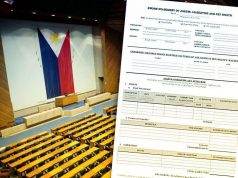Enhancing regional security: The Philippines would be safer with Taiwan on board

By Wallace Minn-Gan Chow
Somewhere in Metro Manila, a young Filipino is trapped inside a scam den, forced to lie to strangers online. Somewhere in Taipei, an elderly Taiwanese man is losing his life savings to a criminal syndicate that operates across countries. Traffickers are moving victims through airports and seaports faster than law enforcement can respond. The Philippines sits at the crossroads of these operations and has become both a battleground and a victim.
These stories are not isolated tragedies. They are connected threads in a larger web of crime stretching across Southeast Asia. And there is a hole in that web: Taiwan is not part of the International Criminal Police Organization or Interpol.
This gap creates a systemic vulnerability that slows down investigations, delays the rescue of victims, gives criminals time to erase evidence, move money, or disappear entirely. Every hour lost is another life damaged.
THE PHILIPPINES’ HARSH REALITIES
Over the past decade, the Philippines has invested in modernizing its security and law-enforcement frameworks, from cybercrime legislation to anti-trafficking reforms, from AMLC enhancements to engagement in the Interpol cooperative mechanisms, yet it still faces severe challenges. This year’s Global Organized Crime Index ranks the country 33rd in criminality and 114th in resilience, in other words, the Philippines is among the highest ranked in the region for criminality and lower-ranked for resilience.
The scale of today’s threats requires broader collaboration. Cyber-enabled financial crime, human trafficking for online fraud, and cross-border scam operations have preyed on Filipino families, posing some of the most pressing threats to national and regional stability. Criminal networks link operations across Manila, Taipei, Southeast Asia, and beyond.
Yet the Philippines cannot fully coordinate with Taiwanese investigators through formal Interpol channels. Without Taiwan inside the system, Philippine authorities must rely on indirect or slower channels, which in turn enables fast-moving cybercriminal operations to thrive and proliferate.
TAIWAN AS A NATURAL SECURITY PARTNER
Effective responses require timely intelligence exchange and coordinated action among all capable jurisdictions. Taiwan is one such jurisdiction. Taiwan’s law enforcement possesses advanced cyber-investigative capacity, strong digital forensics capabilities, and extensive experience with cross-border fraud cases closely connected to Philippine operations.
Taiwan’s proven expertise, high public-safety record, and track record of assisting global partners, including combating drug trafficking, cyberfraud, human trafficking, and other cross-border crimes demonstrate its value as a reliable partner for the region.
Integrating Taiwan into Interpol would close a significant blind spot, allowing real-time intelligence sharing, joint investigations, rapid alerts, and unified responses to crime complexes and trafficking routes.
PEOPLE OVER POLITICS
This isn’t about politics. It’s about people. It’s about the Filipino mother whose son is trapped in a scam compound. It’s about those whose lives hang in the balance while governments debate who gets a seat in which room.
Regional security should not be hindered by political considerations. Crime prevention is a shared responsibility. Supporting Taiwan’s engagement in the Interpol aligns with the Philippines’ broader security objectives:
• Strengthening regional interoperability;
• Enhancing collective resilience against cyber-enabled crime;
• Improving joint responses to trafficking and financial fraud; and,
• Ensuring faster co-investigations and evidence exchange.
A SAFER, MORE STABLE REGION
A safer, more stable region requires Taiwan’s meaningful role in the Interpol, anything less is an invitation for syndicates to continue exploiting the cracks in Southeast Asia’s security architecture. I therefore urge the Philippines to support Taiwan’s bid to participate as an observer in the Interpol General Assembly and unhindered engagement in Interpol meetings. Together we can better safeguard the millions of Filipinos and Taiwanese who are targeted daily by organized crime.
Taiwan remains committed to working with the Philippines to safeguard regional security. Crime doesn’t care about borders. Our cooperation shouldn’t either.
Wallace Minn-Gan Chow is the Representative of the Taipei Economic and Cultural Office in the Philippines.



